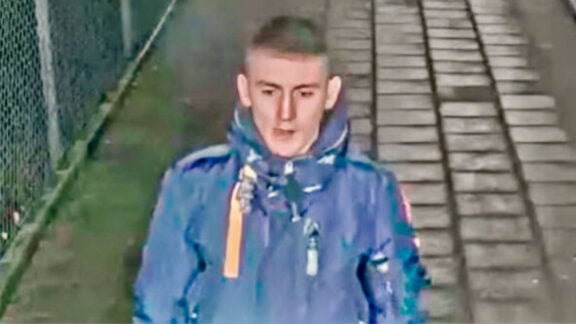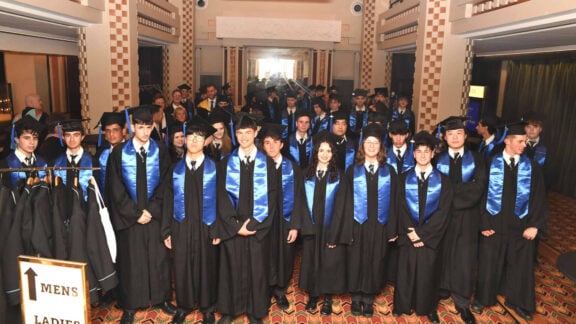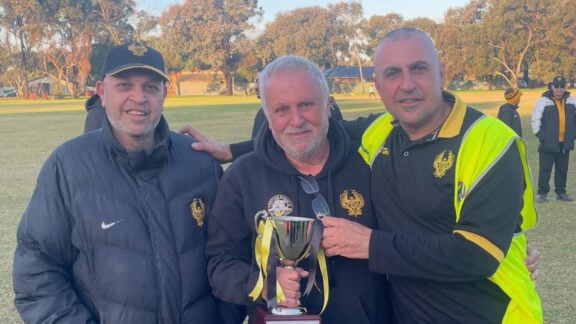The Children of Aphrodite: Cypriots in Australia by Professor Anastasios Tamis was launched in Cyprus by the Australian High Commission on Wednesday, 30 August, at the new Nicosia Town Hall. The Australian Ambassador to Cyprus, Fiona McKergow, organised the event as part of the 50 Years of Australian-Cyprus Diplomatic Relations (1973-2023) celebrations. The launch was held under the auspices of the Speaker of the House of Representatives of the Republic of Cyprus and Leader of the Democratic Rally, Anita Demetriou.
Fiona McKergow, Australian Ambassador to Cyprus, welcomed the author and described the tome as a “feat of academic contribution” to the history of Australian multiculturalism.

She said the book was essential to the 50th anniversary of Australia’s diplomatic relations with Cyprus. The Ambassador went on to praise the contribution of Cypriots to Australia’s political, cultural and economic development and described the book as a “reference point” for Australian Cypriots and their children.
She applauded the Cypriot Community of Melbourne for publishing the book. She mentioned Stelios Angelodimou, the former President of the Community, who conceived the idea. She then recognised the current President, Theo Theofanous, who saw the completion of the book and its publication.
The President of the House of Representatives, Anita Demetriou, said the “most important offer of the Cypriot Community of Melbourne was to entrust the work of research and writing to Professor Anastasios Tamis.” Then, the President of the Cypriot Community of Melbourne and Victoria, Theo Theofanous, called Prof Tamis’ book “an important historical document” on the Cypriot Community in Australia.
He added that it “which extends for more than 100 years” and praised the research by Prof. Tamis who documented the work of individuals and organisations through accounts of Cypriot immigrants to Australia in the pre-and post-war periods. “The Children of Aphrodite: Cypriots in Australia is extensive, and it documents many accounts of struggles and successes that would otherwise be lost to us.”

Theophanous, a former Victorian Labor Minister, said that Prof. Tamis’ book narrates the stories of Greek Cypriots from around Australia.
The Children of Aphrodite –shows how Cypriot organisations became “focal points for maintaining Greek and Cypriot culture and language.”
“Our parents worked hard, and they and their children contributed to the arts, law, politics, healthcare and many other areas.
“Together, they helped build Australia while retaining their traditions and culture. More than that, they helped change Australia into a multicultural, tolerant society,” Theophanous said.
The President of the Cypriot Community of Melbourne said the book contained essential accounts of the experiences of Cypriots in the cities and the Australian outback in the sugar cane areas of Queensland and in big mining towns. He then read from the book about Spyros Kyriacou, who migrated to Australia in 1926 to reunite with his brother, who had settled four years earlier.

We camped with several Italian migrants in the open. The water holes were infested with mosquitoes and frogs; there were millions.
The boss was very harsh; we were not allowed to put the pick down. I cleared large farms with the axe for the next three years. When a new Australian Prime Minister was elected.
He ordered that priority for employment be given to the war veterans and the Australians. It was a difficult period. The Victorian–born Premier of South Australia, John Gunn (1884–1959), protested against so many foreigners entering the Commonwealth.
The unions systematically opposed that foreigners who could not speak a word of English were being taken on, while Australian workmen of good standing were forced to walk the streets.
Mr Theophanous then talked about his father, Charalambos Theophanous (1910–1995), born in Neo Chorio, worked as a cobbler and was “captivated by my mother Marika’s Athenian accent when they met and fell in love.
“She had escaped famine and death during the cruel years of the German Occupation of Greece after having experienced her father’s death from starvation – along with thousands of other Greeks.
“She and a group of thirty compatriots commandeered a boat from under the noses of the Germans and escaped from Chios to Çeşme, a Turkish town opposite Chios before their settlement in British-occupied Cyprus. Charalambos then embarked on Patris and, after a “tedious journey for three months”, arrived in Melbourne. “He was alone for three years trying to raise the money to buy fares to bring his wife and children.

Mr Theophanous said his father became an “unskilled industrial labourer in the Standard Motor Company in Port Melbourne.” But unable to raise the funds, he was forced to seek help from the World Council of Churches, “which provided no-interest loans for family reunification.
“It took Charalambos almost 35 years to repay the loan,” said an emotional Mr Theophanous.
The Cypriot Community president and a former government minister said that from humble roots and sheer struggle, his parents raised a family that saw him “serve as a minister in the Victorian government for three terms.”
The ceremony ended after Prof. Tamis thanked the Cypriot Community of Melbourne and praised the former President, Mr. Angelodimou and current President, Mr. Theofanous, and the board members. Prof. Tamis said his book is “a tribute to the fathers and mothers of Cypriots, the pioneers, the fighters, the people who laid the foundations of community presence and organisation”.










